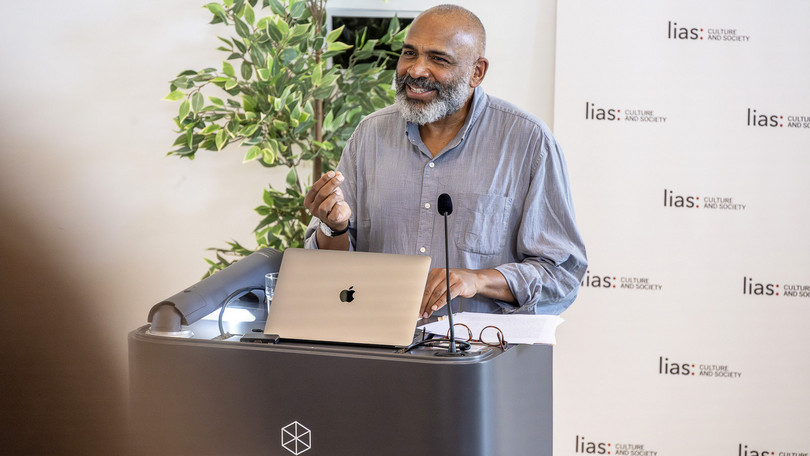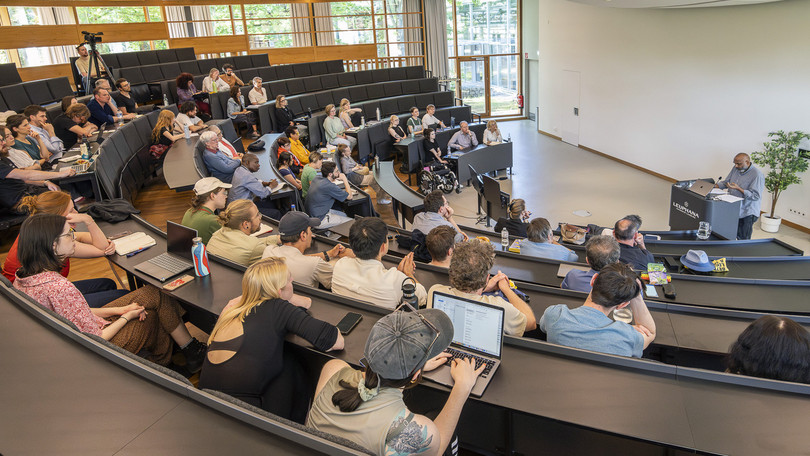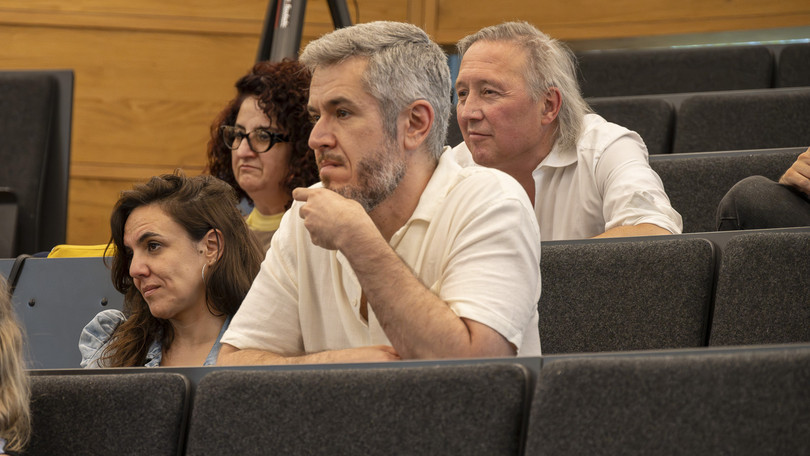LIAS Lecture: How to become Stuart Hall (David Scott)
2024-06-26 David Scott, Professor of Anthropology at Columbia University, delivered a LIAS Lecture in which he explored the life and intellectual legacy of sociologist Stuart Hall (1932-2014), whose pioneering research on colonialism established him as a mainstay in the field of cultural studies.
David Scott, born in Jamaica like Hall, has made a significant contribution to the intellectual development of the Caribbean, as Senior Fellow Richard Drayton made clear in his introduction. The New York scholar "writes the past in and for the present."
Scott's lecture presented preliminary notes on Hall's life from 1932 to 1957. In retrospect, Stuart Hall's constitution of "Cultural Studies" was postcolonial from the outset due to his personal experiences, because Hall emigrated from Jamaica to Great Britain in 1951. Against this background, he ultimately became one of the central figures of the "New Left" and cultural studies. David Scott shed light on Hall's unique intellectual lifestyle, which was characterised by dialogue and ethical generosity.
Based on his conception of biography as a literary form that is neither fiction nor theory, Scott justified his approach of taking the life of Stuart Hall, who was born the youngest child of a middle-class brown family in Jamaica, as a subjective viewpoint on his life as an opportunity to "arrange a narrative picture".
An intellectual leader of the New Left in ten years
How did Stuart Hall go from being a Jamaican in his early 20s who reached Great Britain with his mother to becoming one of the central figures of the New Left in just under ten years? Because he was not only a budding writer and doctoral student, but from 1960 onwards the editor of a new magazine, the still-published "New Left Review". As Scott showed, 1956 was a decisive year in Stuart Hall's life story. He himself described the year as a "hinge" between his life as a colonised subject in Jamaica in the 1930s and 1940s and his role as a political intellectual in Great Britain in the 1950s. In Oxford, Hall began to become increasingly politically active.
His encounter with Raymond Williams at Oxford, where Hall attended seminars on socialist theory and English literature, is central to this. The encounter with the author of "The Idea of Culture" (1953) and the book "Culture and Society" (1958) changed Hall's life; Williams, 15 years his senior, became a central intellectual figure. And the important "hinge year" of 1956 began, as David Scott recounts, with the critical examination of the manuscript of "Culture and Society" and the idea of a concept of culture in the critical left. This departed from the British and European tradition and anchored culture in everyday life. Without Stuart Hall and other pioneers of the British left, scientific analyses of human practices as cultural phenomena would be unthinkable. But the anchoring of these practices in discourse and the resulting construction of differences can also be traced back to Stuart Hall and his fellow thinkers.
The political shockwaves of 1956
In the same year, 1956, the Russians put down the uprising in Hungary and Great Britain and France took part in an invasion of the Suez Canal. These two events, just days apart, revealed the underlying violence and aggression of the two dominant political systems, Western imperialism and Stalinism, Stuart Hall later recalled. "Shock waves" went through the political world and defined the limits of what was politically tolerable for Hall's generation. Just one year later, central left-wing journals in Great Britain, "The New Reasoner" and "Universities and Left Review", were founded, and in 1960 they merged to form "New Left Review", of which Stuart Hall was editor.
David Scott's research at the Cadbury Research Library at the University of Birmingham, where most of Hall's papers are kept, and at the private home of Stuart Hall and his wife Catherine in West Hempstedt, among other places, impressively demonstrated how Stuart Hall's work and life can be understood as an intellectual adventure and public challenge.



